Hello friends,
Hello friends how are you all.
I hope you are all well in the ego of God.
Every year since 1952, this day has been celebrated as National Martyrs' Day. At present, under the management of Dhaka University, on February 21 at 12:00 PM, first the President and then the Prime Minister, members of the Cabinet, Vice-Chancellor of Dhaka University, teachers, officials of various embassies in Dhaka, political leaders, various institutions and organizations and people from all walks of life came to the Central Shaheed Minar and paid their respects to the martyrs.
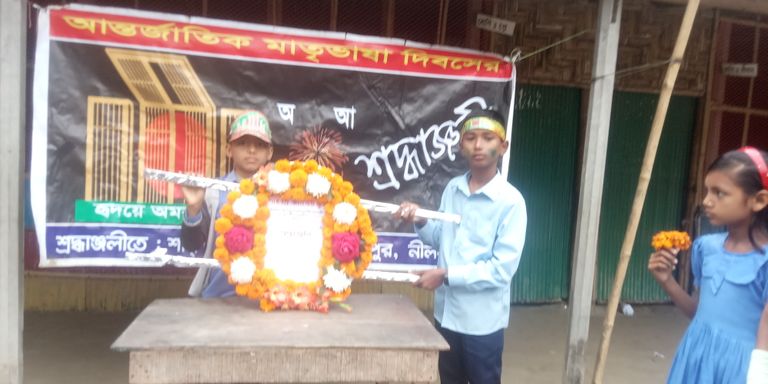
. At this time, the sad melody of the song "Ekushey February" painted in my brother's blood, "Ay Buligi Pari" started playing.
After Bangladesh became independent, February 11 was declared as a public holiday. On this day, radio, television and cultural organizations organized various programs highlighting the significance of Martyr's Day.
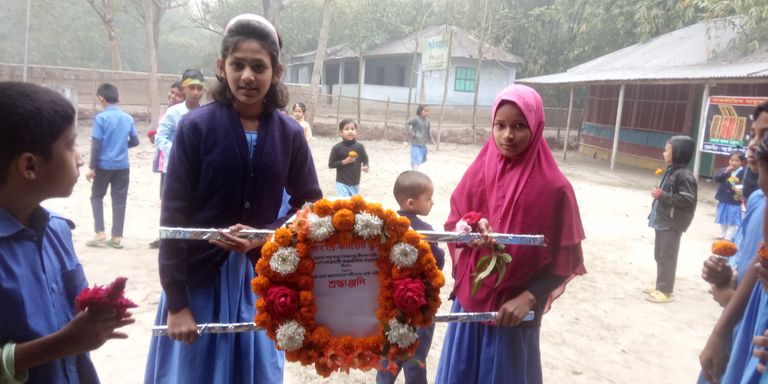 Newspapers of the country also publish special circulars. Bangla Academy organizes Ekushey Book Fair in Dhaka throughout the month of February. Currently, this International Mother Language Day is also celebrated in several schools and educational institutions in India. But mother tongue means the mother's language, or any language that is as important to the child's development as the mother's.
Newspapers of the country also publish special circulars. Bangla Academy organizes Ekushey Book Fair in Dhaka throughout the month of February. Currently, this International Mother Language Day is also celebrated in several schools and educational institutions in India. But mother tongue means the mother's language, or any language that is as important to the child's development as the mother's.
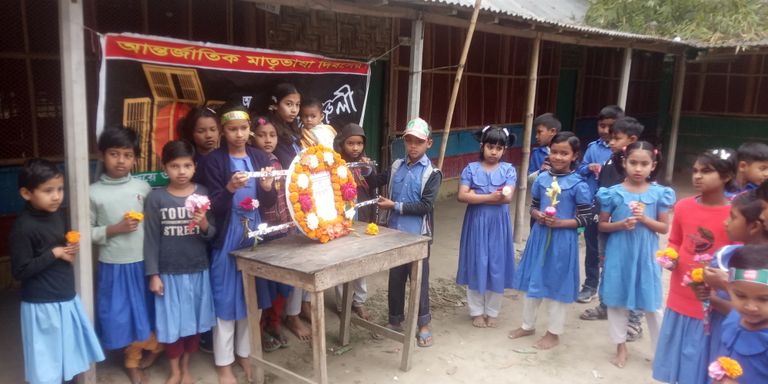
The language a person is most proficient in speaking, the language he learned in childhood from his parents or guardians and is able to speak the same language as the people of the region where the language is widely spoken, is generally called the mother tongue or primary language. On November 17, 1999, UNESCO recognized February 21 as International Mother Language Day. A child's mother tongue is part of his or her personal, social and cultural identity.
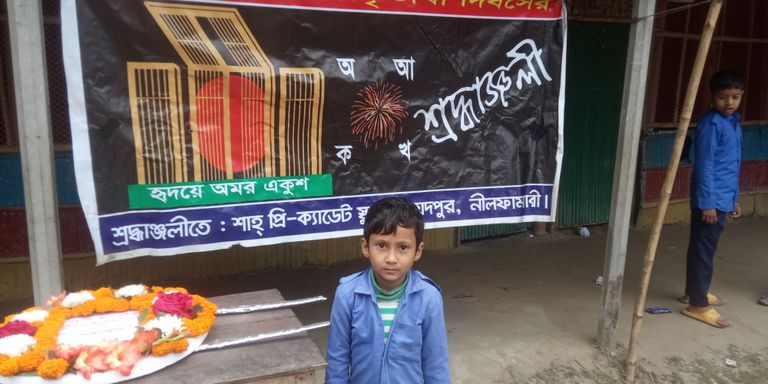
International Mother Language Day is a special day celebrated in all Bengali speaking regions including Bangladesh and West Bengal on 21st February, which is celebrated globally on 21st February every year as per the decision adopted by the United Nations on 17th November 1999 .
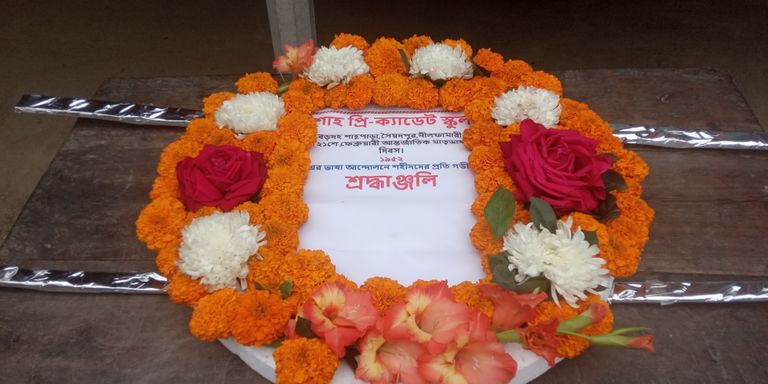
It is also known as Martyr's Day. This day is marked as a day full of sad and glorious memories of Bengali people's language movement. On this day (8 Falgun, 1358, Thursday) in 1952, many young students were martyred by police firing on students protesting in Dhaka to demand Bengali as the state language of the then East Pakistan. Among whom Rafiq, Jabbar, Shafiur, Salam, Barkat are notable and for this reason this day is being marked as Martyr's Day.
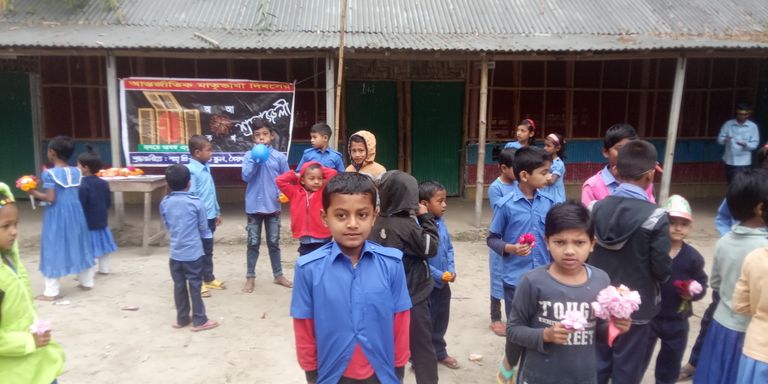
The mother tongue successfully helps to reflect social patterns of action and speech. There is also the argument that there is no such thing as mother tongue or vernacular. Studies show that people from outside a particular place can become proficient in the language within two years.
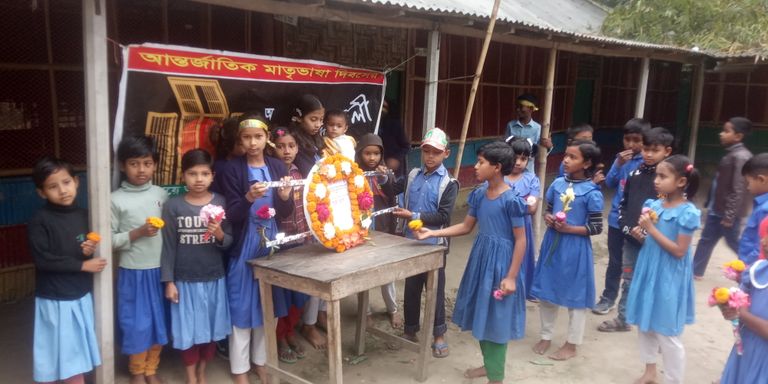
The language protest started in November-December 1947 in Dhaka, the capital of post-partition East Bengal, based on the discovery of language consciousness in the Bengali self-search about the position of the Bengali language in the Bengali society. In March 1948, there was a limited movement in this regard and on February 21, 1952, it showed its extreme expression.
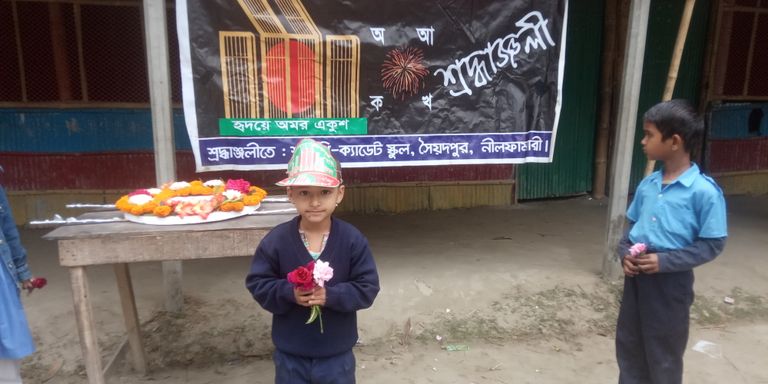
That morning, when the students of Dhaka University disobeyed Section 144 and came out on the streets, the police opened fire on them. Abul Barkat, Abdul Jabbar, Abdus Salam and some other students were killed in this. Angry Dhaka residents gathered at Dhaka Medical College Hostel to protest this incident. Despite the torture, the students as well as the common people again took to the streets the next day on February 22 to protest.
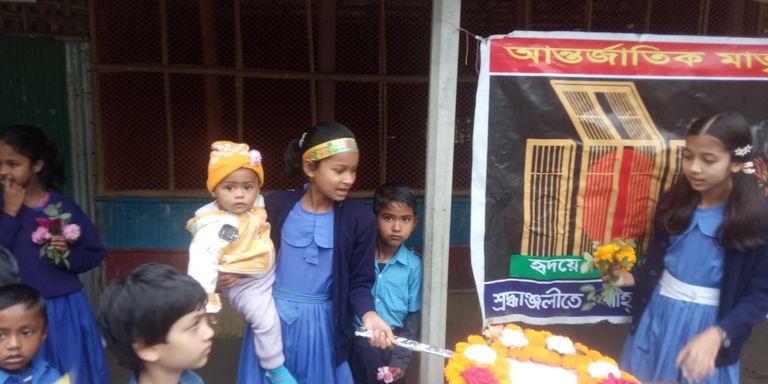 They participated in Ghaibi Janaza held for the martyrs in Medical College Hostel premises. To immortalize the memory of language martyrs, a monument was erected overnight on February 23 in the premises of the Medical College Hostel, which was demolished by the government on February 26.
They participated in Ghaibi Janaza held for the martyrs in Medical College Hostel premises. To immortalize the memory of language martyrs, a monument was erected overnight on February 23 in the premises of the Medical College Hostel, which was demolished by the government on February 26. 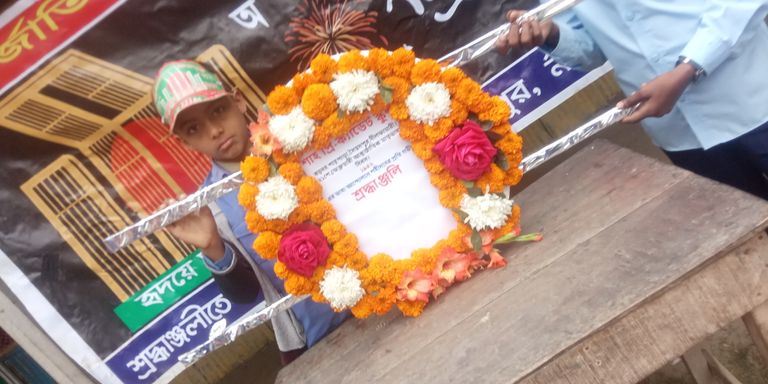
The language movement gained more momentum through this incident of February 1st. When the United Front won the provincial assembly elections in 1954, Bengali was recognized as one of the official languages of Pakistan in the session of the Constituent Assembly held on May 7. The constitution was amended on 29 February 1956 recognizing Bengali as the second state language of Pakistan.
Upvoted. Thank You for sending some of your rewards to @null. Read my last posts to make sure that BLURT burning is profitable for you. Before using this bot please make sure your account has at least 100 BP. Get more BLURT:
@ mariuszkarowski/how-to-get-automatic-upvote-from-my-accounts@ blurtbooster/blurt-booster-introduction-rules-and-guidelines-1699999662965@ nalexadre/blurt-nexus-creating-an-affiliate-account-1700008765859@ kryptodenno - win BLURT POWER delegation